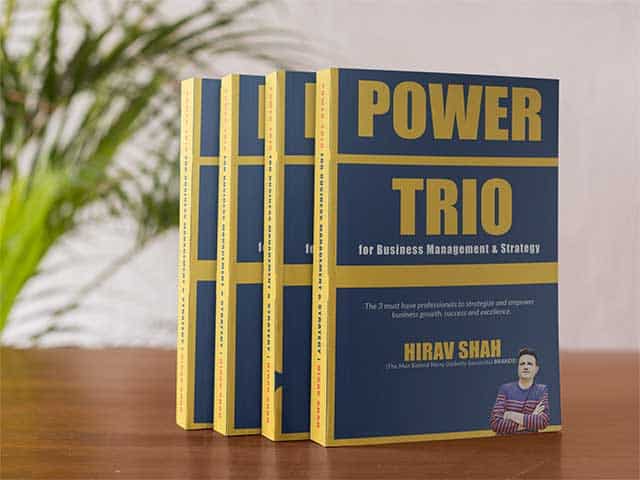In any workplace, having positive relationships with your colleagues is essential for fostering a productive and harmonious environment. When you develop genuine connections with your co-workers, it reduces stress, builds trust, and enhances overall teamwork. As a result, work becomes not just more efficient, but also more enjoyable.
Tips for Building Better Relationships with Co-Workers: Insights from Hirav Shah, The Game Changer
Hirav Shah, a renowned business strategist and transformation expert, offers valuable advice on how to navigate co-worker relationships. Let’s dive into his actionable tips for building strong, positive relationships in the workplace.
Table of Contents
1. Get to Know Your Teammates

Spending time with your colleagues at work presents a unique opportunity to understand them better on both personal and professional levels. This helps foster camaraderie and trust within the team.
Example:
Imagine you’re working on a project with someone who initially seems distant or introverted. Rather than forcing interaction, take time to learn about their interests over time. You might discover shared hobbies, such as a love for the same TV series or weekend hiking spots. As the relationship matures, you’ll find it easier to communicate and collaborate.
Even for introverts who may struggle with initial social interactions, patience and empathy go a long way. After all, you might discover that your quiet colleague is an incredibly supportive team member or even a future work partner.
2. Find Common Interests

When you start connecting with colleagues, identifying shared interests can serve as an excellent icebreaker. It’s easier to bond over a common passion—be it a TV show, sports team, or even a similar approach to problem-solving in work tasks. These small conversations can pave the way for deeper, more meaningful interactions.
Example:
Imagine chatting with a colleague about the latest episode of a popular TV show, only to discover you both support the same football club. You may even end up bonding over a weekend match, eventually translating that shared connection into more productive and collaborative teamwork.
By staying open and approachable, you increase the likelihood of discovering these common interests, which helps break down any barriers and foster stronger workplace relationships.
3. Work to Build Trust, Not Just to Earn

While most people are driven by the rewards of hard work—such as promotions or salary increases—Hirav Shah emphasizes the importance of building trust in your relationships. Trust is the foundation for collaboration, smooth communication, and success in any team setting.
Example:
Instead of focusing purely on your individual contributions, take the time to show reliability and support for your teammates. If someone is struggling with a tight deadline, offer to help where you can, even if it means putting in extra hours. Over time, this builds trust and mutual respect, strengthening your team dynamic.
4. Speak Positively About Others
Creating a positive work environment is as much about how you communicate as it is about your actions. One powerful way to nurture positive relationships is by speaking highly of your colleagues, even behind their backs. Complimenting your co-workers for their contributions fosters a supportive atmosphere and can even inspire others to do the same.
Example:
If a colleague completed a challenging project successfully, publicly acknowledge their hard work and commitment. This positive reinforcement creates a ripple effect, encouraging others to adopt the same mindset. In turn, everyone becomes more invested in creating a healthy, respectful workplace.
5. Support and Appreciate Others’ Work
One of the most effective ways to build strong relationships at work is to show genuine appreciation for your colleagues’ efforts. Whether they’ve produced an outstanding result or simply done their best in a challenging situation, recognition goes a long way. It not only boosts morale but also strengthens professional bonds.
Example:
If a co-worker completes a report that’s crucial for your project, thank them for their hard work. A simple “Thank you” or “I appreciate the effort you put into this” goes a long way in establishing a connection. Furthermore, offering to assist them with any future tasks will demonstrate your willingness to support them, making the relationship more collaborative.
Pro Tip: Ask your colleagues how you can help them. This opens the door for more communication, making your relationship more engaging and productive.
Final Thoughts on Building Strong Relationships at Work
The success of any workplace isn’t just determined by individual performance. Building and maintaining positive relationships with your colleagues is just as important. By following the tips outlined by Hirav Shah, you can create a work environment filled with trust, mutual respect, and collaboration.
Remember, nothing destroys careers and relationships faster than negativity, drama, or spreading rumors. The best approach is to clock in, do your job with integrity, and go above and beyond when the opportunity arises. When someone asks for help, be there. When you need assistance, don’t hesitate to ask.
Be the kind of coworker you would like to have!
Frequently Asked Questions (FAQs)
1. How can I build trust with my co-workers if I don’t know them well?
Building trust takes time, but you can start by being reliable, following through on commitments, and showing support when others need help. It’s also helpful to communicate openly and honestly. Trust develops when people feel safe and valued.
2. What if I don’t share any common interests with my teammates?
That’s okay! Focus on finding areas of professional interest or work-related topics where you can engage. If common hobbies or personal interests don’t overlap, you can still connect through shared goals, team projects, or even work-related challenges.
3. What’s the best way to handle a colleague who isn’t easy to work with?
When dealing with a difficult colleague, always strive to remain calm, respectful, and solution-focused. Focus on building trust gradually, stay patient, and find common ground. A positive attitude can go a long way in improving a tough working relationship.
4. How can I motivate others without overstepping boundaries?
You can motivate your colleagues by acknowledging their efforts, offering constructive feedback, and providing support when needed. Motivating others is about lifting them up rather than pressuring them. A simple compliment or recognition can go a long way in encouraging someone.
5. Can trust-building help improve team performance?
Yes! A team that trusts each other communicates more effectively, collaborates seamlessly, and resolves conflicts quicker. Trust allows for a more open, creative environment, which ultimately boosts overall team performance and productivity.
The Role of a Business Strategist in Building Relationships

As a business strategist, Hirav Shah’s role in fostering workplace relationships goes beyond simple advice. He emphasizes the strategic importance of trust and collaboration in creating an environment where teams thrive. By promoting a culture of openness, respect, and mutual support, business strategists can directly impact the success of an organization’s culture and long-term growth.
Whether it’s through clear communication, trust-building strategies, or team cohesion exercises, business strategists like Hirav Shah understand that strong internal relationships are the key to external success.
In conclusion, building positive relationships with your co-workers is one of the most powerful ways to enhance workplace dynamics. As Hirav Shah says, “Be the kind of coworker you would like to have.” By being supportive, understanding, and trustworthy, you can create a workplace culture that fosters productivity, happiness, and lasting success.
Power Trio by Hirav Shah

The book “Power Trio” by author Hirav Shah reveals why every successful business leader needs a strategist, a lawyer, and a CA.
Author Hirav Shah’s book “Power Trio” shows how aligning finance, law, and strategy creates a powerful foundation for lasting business success
















